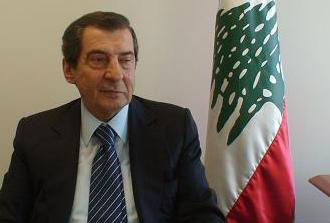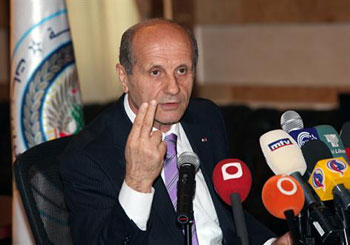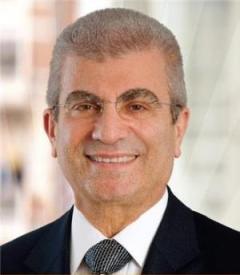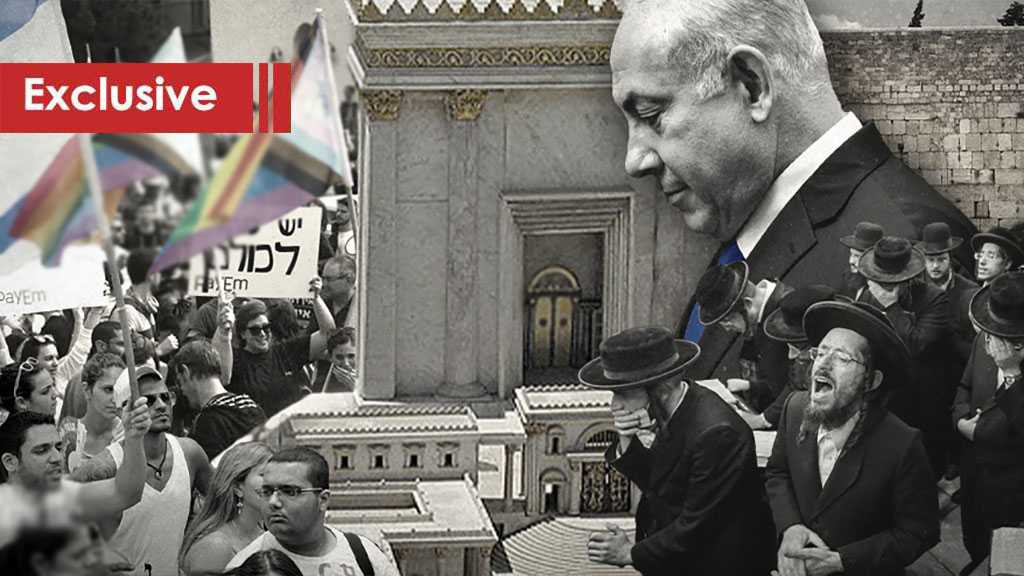
Reform “Threatened” again: 1960 Law to Triumph!

One year ahead of the parliamentary elections in Lebanon, the battle seems to have been already started.
Nothing strange. The Lebanese actually believe that the 2013 polls would be decisive, even fateful. However, some details are still missing, including the electoral law and system.
Between the proportional representation and the current majoritarian system, the debate seems to be very tense...
Battle Already Started!
"On elections day, you will say democratically with your votes at the ballot boxes that the people want to overthrow the regime..."
The previous statement was not made on the elections' eve as some might think. Rather, it was made more than one year ahead of the elections, as it was part of the last speech made by the Future Movement leader former Prime Minister Saad Hariri during an "electoral" ceremony held last week in Beirut.
That's it. The electoral battle has already started in Lebanon. Everything happening in the country these days has electoral significations, although alliances have not been set yet.
The main obstacle remains, however, technical: the electoral law. Three main proposals are being discussed, but no clear decision has been made, as consensus is still absent, threatening the reform path once again, despite all promises.
Reform Missing...
Speaking of reform, Lebanese recall the last major reform attempt that was made when the Lebanese government-appointed National Commission for a New Electoral Law, known as the Boutros Commission.

This took place after its chairman Fouad Boutros, in 2006 released a draft law that proposed major changes to the electoral law. But the law was never adopted, and instead parliament passed a law in September 2008 that was an amended version of the pre-civil war 1960 legislation.
Despite the fact that the same scenario might repeat itself, other proposals are now set, including proportional representation under which also comes the proposal set by Interior Minister Marwan Charbel and the newly-established Orthodox Meeting proposal. Each one has its advantages and inconveniences, but these are still unable of leading...
Proportional Representation within The Sect...
A draft electoral law was put forth last year by the newly-established Orthodox Meeting, and was believed to be the first of its kind at all levels.
The mentioned proposal calls for each sect to elect its own lawmakers based on proportional representation. In other words, it calls for a single electoral district, but with proportional representation within each sect.
An Orthodox voter, for example, would choose among a number of 14-member lists, equal to the community's allotment of seats in Parliament.
For the proposal's supporters, it represents a valid formula to achieve a just and effective representation. "This proposal is the only solution to injustice and unfairness," former Deputy Speaker Elie Ferzli told moqawama.org.
He explained that the mentioned proposal makes all sects partners, and no one seems to be subordinate to the other, and this is the essence.

The Orthodox proposal has drawn fire from officials across the country, with warning it would deepen sectarianism in the country. But Ferzli rejects such argument. "This proposal is the first step towards removing sectarianism from the society," he said. "Based on this proposal, the different forces would find themselves obliged to ally with other movements in other sects," he added.
According to Ferzli, sectarianism would increase in case the Orthodox Meeting proposal was not adopted.
He said that the nation's unity can only be consolidated when every sect feels partnership with the other sects, not by keeping Christians for instance as subordinates to others.
Proportional... Adopted by Charbel
Meanwhile, proportional representation was raised as another major proposal, one "perfect" model adopted in most developed countries. The draft law submitted by Interior Minister Marwan Charbel adopts proportionality, and adds to it the principle of preferential voting.

Proportional representation means that districts can no longer be won by a single list of candidates as easily. Elections under proportional representation would allocate seats to lists based on the percentage of total votes they receive. If it wins 51 percent of the vote, a 10-member electoral list, for example, would receive five or six of the seats in its district, depending on the number of voters there.
In past elections, if a list's candidates received 50 percent or more of the vote, all of the candidates got elected to parliament, regardless of the fact that another list also received a significant number of votes. Under Charbel's law, this is not the case anymore. Indeed, if a district with 10 seats had two lists that split the vote 60:40, one list would send six candidates to parliament while the other would send four.
Other reforms are present in Charbel's law as well. It calls for each list to include 30 percent of the minority gender. This means that if 70 percent of a list's candidates are men, 30 percent must be women - and vice versa. It also allows Lebanese expatriates to participate in the electoral process.
Proportionality...
For most Lebanese, proportionality is the best and most democratic model, given that it guarantees the best-ever representation. "Such model offers, at least, a widest representation, if not necessarily a better one," member of MP Michel Aoun's Change and Reform parliamentary bloc, MP Naji Gharios, told moqawama.org.

He declared that the Free Patriotic Movement was supporting a proportional system. "We found out that this is what people want, and we always stand at the side of our people," he pointed out.
Proportionality is, however, rejected by two political blocs for different reasons, MP Walid Jumblatt's Progressive Socialist Party and MP Saad Hariri's Future Movement.
To begin with the PSP, its officials stress that the party was not against the proportionality in principle, given that such a system of representation was demanded by the Lebanese National Movement and left-wing party led by Jumblatt's father, late Kamal Jumblatt, during the Lebanese civil war. But they argue that circumstances have changed in Lebanon. Jumblatt has recently said that the stances of some political groups that are calling for proportionality reveal that they are doing so only because they seek to exclude other factions, including the PSP, from the political realm and not for the purpose of achieving political reform. But this argument is rejected by the pro-proportionality blocs, such as the FPM. "No one wants to exclude any faction through the electoral law," MP Naji Gharios asserted. He said that the real effectiveness of any faction is characterized by its national acts, not by the number of its lawmakers.
In contrast, the Future Movement is rejecting proportionality because of "weapons". Its leader Saad Hariri said that proportionality cannot be adopted as long as some parties possess weapons. Such argument was illogical to the degree that Ferzli and Gharios, speaking to moqawama.org, chose not to comment on. They wondered whether weapons can only influence elections based on proportionality, in case they wanted to take such argument "seriously."
Life Stops in 1960...
In light of the objections to proportional representation expressed by various political blocs, Lebanese seem to be heading once again towards the adoption of the current system, which was elaborate ahead of the civil war in 1960.
This system is a winner-takes-all system. It adopts the qada as an electoral
district. Under this system, minorities have been able to determine the final outcome of the elections because the size of the district is relatively small. Critics to this system argue that candidates are elected to parliament if they belong to a list that gains the majority of votes. This means there is potential for candidates to be elected who are not preferred by the majority of voters.
According to former Deputy Speaker, this system cannot be accepted anymore. "Under this system, non-Christian voters are selecting the majority of Christian lawmakers, and this is unacceptable," he told moqawama.org. "Just like MP Walid Jumblatt refuses to be excluded, we refuse to be subordinates," he said.
For his part, Gharios said that the 1960 law, under its current form, was unacceptable.
However, he did not close the door for a possible "consensus" over the mentioned law. "If the 1960 law will be adopted, then some modifications at the level of the districts are a must," he said. "The parliament as a whole will take the decision. We cannot monopolize this process."
In case we have to choose between holding elections under the 1960 law or not holding the elections, we would vote for the second choice," former MP Elie Ferzli told moqawama.org in conclusion.
Despite the "repercussions" of such an act, Ferzli highlighted the "strangeness" of the Lebanese system. In fact, the country, which classifies itself as the most democratic model in the region, is still living in the sixties.
Because all promises of reforms remain void because of some political and electoral consideration, it might be time for Lebanese people to raise their voice, for one and only one time!
Source: moqawama.org



